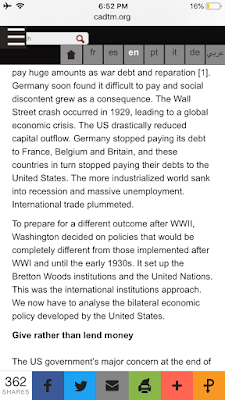The NYT has an outstanding series on debt ("The Debt Trap"). Today's article was about ballooning credit card debt in Turkey (Landler, "Credit Cards Tighten Grip Outside U.S."). Most European citizens, until recently, used debit cards, not credit cards, so Turkey's acceptance of credit cards is unusual.
Here are some facts from the article:
1. Outstanding credit card debt in Turkey ballooned to nearly 18 billion dollars in 2007.
Before any Americans start gloating, here is a link to our consumer credit numbers--and yes, that's in billions of dollars, and percentage-wise, we're in the same boat as Turkey, a country that recently had to pay over 15% on its bonds/Treasuries to get buyers:
(The Federal Reserve tracks outstanding revolving consumer debt in its "G19" release. What is revolving consumer debt? It's mostly credit card debt. The G19 stats include all outstanding balances outstanding, including balances from people who pay off their debt at the end of the month, not just those who have continuous balances.)
2. Cute Turkish proverb re: risk-taking: "Stretch your leg only as far as your blanket."
3. South Korea at one point, prior to nationalizing some banks/issuers, had a 28% default rate. South Korea had 148 million credit cards. South Korea's population at the time was only 49 million people.
Unrelated note about our FBI and wonderful national security people: the same 8/10/08 NYT has an article about closing the anthrax case (page 17). We now know the perpetrator/terrorist was probably an American-born Christian. The FBI, in its infinite wisdom, reflexively targeted Muslims, in this case, Pakistani-born residents, including one American citizen. (Makes sense. We all know Pakistani Muslims have a long history of using anthrax in America, right? Wait...) The FBI apparently asked these suspects, who worked for the city, "What do you think about 9/11?" (Because if you're a terrorist with half a brain, this is the question that will get a confession or relevant admission about anthrax.) Here's a chilling line about how the FBI works:
[A]n [FBI] agent pointed a gun through an open window at [the suspect's] home while others knocked down the front door as his wife was cooking in the kitchen.
Here's where it gets really tragic. Two of the Pakistanis were non-citizens. Their visas expired, and they had to find work abroad. As for the remaining Pakistani-born citizen suspect, every time he traveled to Canada to see his brother, he was searched and interrogated for up to two hours, and his name was put on a watch list.
Congrats, FBI. With friends like you, who needs enemies to sully the name of America?
As for Bruce Ivins, the white American-born Christian-raised anthrax suspect who killed himself, may you burn a slow death in the lowest levels of hell.
I am of course specifying Ivins' racial and religious background. Aren't racial and religious traits relevant in understanding why people commit evil acts? More important, has President Bush declared a War against Chemicals yet? Do we need a new security agency to handle these chemical issues? There are millions of chemical compounds just waiting to be unleashed on Americans. Should we petition the government to open a Department of Chemical Security? Something must be done. Perhaps we should spend billions of taxpayer dollars restricting chemicals from entering the hands of American-born citizens to prevent future terrorist incidents. For more information, or to register your comments, write the government at
Attn: George Orwell
Ministry of Peace
1984 Ave.
Washington, D.C. 20500
And don't forget: War is Peace.
For more on this topic, check out this earlier post:







